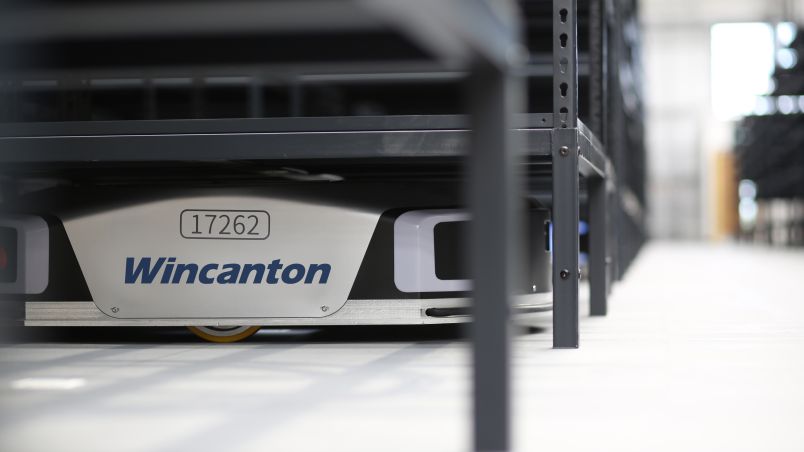
With Brexit set to join COVID-19 on the list of challenges, our Managing Director for Digital & eFulfilment, Paul Durkin, explores how lessons we’ve learnt this year can lay the foundations for successful futures.
The ‘new normal’ has dominated discussions for retailers and supply chain professionals in 2020. In reality, this shift towards eCommerce and a more personalised, choice-orientated service brought about by COVID-19 has not come as a huge surprise; it’s the pace of the change that has caused shockwaves.
Some believe that the impacts of the pandemic have accelerated online shopping activity, and the demands put on the infrastructure that supports it, by at least two years. Businesses have had to adapt and evolve how they operate, seeking new ways of working through partnerships, collaborative approaches and even fundamental shifts such as moving to ‘online only’.
Many retailers are still on their journey to change the way they work and mitigate the upheaval. But in a time of disruption, another factor is on the radar - Brexit.
The only certainty we have around the UK leaving the EU is that 1 January 2021 will become a line in the sand. Whatever the outcome of any trade negotiations, it’s certain that businesses will need to adapt quickly once again.
This year has taught us all lessons when it comes to supply chains and eCommerce operations. We can all take some of these learnings to ensure we remain resilient.
Flexibility is key
As consumer behaviour rapidly changes, so to must retailers own processes and systems. While convenience outscores speed for many, especially with flexible working patterns having increased, the infrastructure and processes needed to ensure timely, accurate deliveries are growing in importance. Gaining greater visibility and streamlining stock lines are high on agendas, as is different approaches to where goods are held.
Hyper-local fulfilment centres are an option to support deliveries and returns - particularly in urban areas – while contingency storage for key product lines and materials is once again at the front of minds to build up buffer stocks. The common factor in approaches like these is securing the storage space to support adaptations. Many retailers and supply chain operators have moved to increase their footprints during the past 12 months – Wincanton included, with its recent acquisition of three strategic sites – but demand for space remains high, especially for short-to-medium-term options.
Being able to access shared pools of storage through working in partnerships and networks is one answer to the question for big retailers, but another option is online marketplaces. Wincanton has entered this market through oneVASTwarehouse.com; an online platform that links buyers and sellers of spare storage capacity to unlock underutilised space. Unique approaches to working together, even with traditional rivals, have been catalysed during 2020 with the benefits to efficiency and access hard to ignore.
Capability and safety delivered through collaboration
Away from keeping physical and virtual shelves stocked and seeking options to ensure home deliveries are not disrupted, retailers selling large items that require expert handling and assembly are advised to assess their own capabilities.
There have rarely been more challenges when it comes to successfully delivering and assembling items in consumers’ homes. Protecting all involved (delivery technicians, customers, warehouse operatives) remains the priority as the COVID-19 pandemic continues, which can only be ensured with considered and methodical alterations, as we explored in our ‘COVID-19 eCommerce delivery adaptations for retailers’ article.
There are many separate challenges; these range from colleagues being unavailable to work as normal due to necessary self-isolation, through to customer choice around contactless deliveries and scaled back versions of a full ‘white glove’ delivery service. Although these challenges are quite different, collaboration is an answer that addresses core issues such as availability and expertise.
Some of our own partners experienced frustration during the early weeks and months of the pandemic as services adapted in line with daily and hourly changes. The number of regions impacted by lockdowns may increase as we move through 2020 and into 2021, which will once again bring about the disruption witnessed in March and April. Collaborative networks are perhaps the best approach to avoid a full pause of service, with shared pools of resources able to flex to meet demand, both for delivery capabilities and expertise around health and safety.
At Wincanton, we brought in measures that included specific driver technician pairings to reduce contact between multiple individuals, through to support and training to provide safe, contactless home deliveries. Since then we have established a bespoke eFulfilment hub that houses operations for some of our key partners and customers, and facilitates greater levels of collaboration and resource sharing.
Customer experience is the differentiator
It’s an age-old adage in retail that the customer is always right. In modern eCommerce retail, this translates to customer experience being key. With a wealth of options, customers can usually find the items they need through other channels, so making sure the level of service everyone receives exceeds expectations is essential for maximising loyalty and further transactions.
As we head towards the UK leaving the EU in parallel with COVID-19, there will be disruptions. Whether these stem from suppliers or come about at any of the other major stages of the supply chain, all retailers are likely to be affected at some point in the coming six months.
Consumers are generally more accepting of things going wrong following the events of 2020 so far. But what can’t be tolerated is a poor level of service. In a world that is truly connected, negative reviews (both published online or spread through messages and conversations) reach further and faster than ever before, meaning that even minor drops in standards have potentially large ramifications.
An obsession with customer communication is more important than ever. Working with our technology partners Wincanton has built a Carrier Management Service to simplify the customer journey, manage the inevitable exceptions and improve the customer experience across multiple delivery channels.
Finding the right delivery partner for customer-facing operations is an important step. With increased volumes and higher than ever consumer expectations, confidence in the right partner has never been more valuable.




